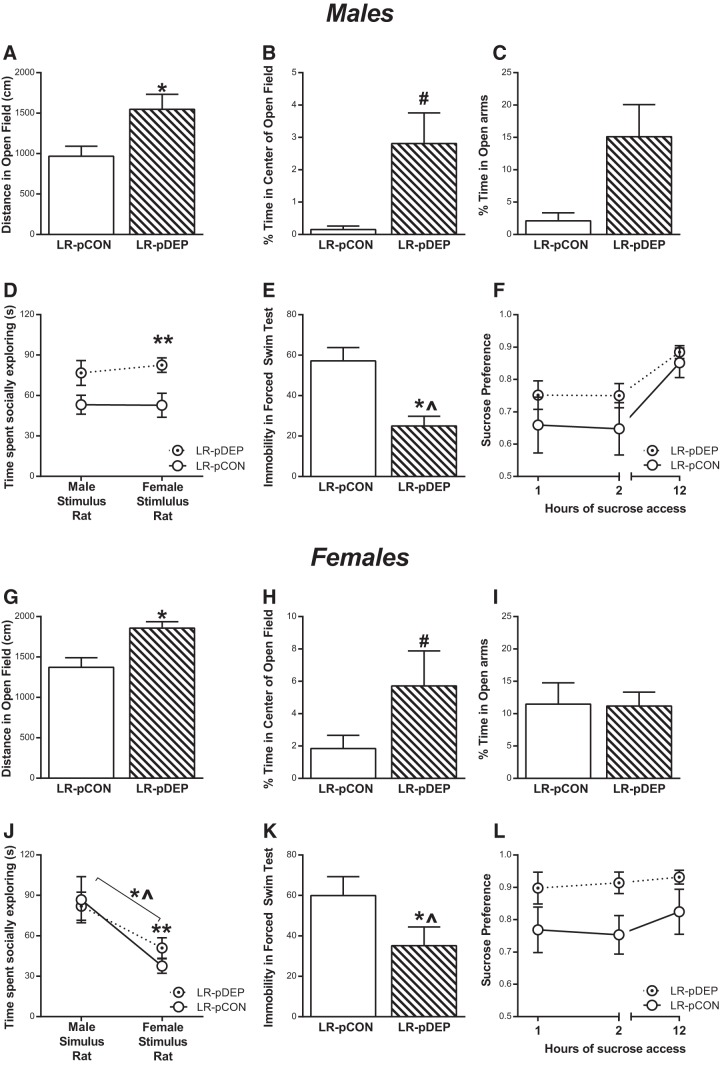Figure 4.
Perinatal methyl donor depletion improves LR rats' adult anxiety- and depression-like behavior. In an attempt to reduce DNA methylation levels in developing LR pups, LR mothers were fed a diet severely depleted of methyl donors (or standard rat chow) from late pregnancy through weaning. Their adult offspring (pDEP and pCON; males n = 15, females LR-pDEP n = 14, LR-pCON n = 16) were later evaluated in several emotional behavior assays (A–L). A, In male offspring, perinatal methyl donor deprivation led LRs to display greater exploratory behavior in the OFT compared with controls. B, C, The LR-pDEP males also showed less anxiety-like behavior, with a trend to spend more time in the center of the open field and significantly more time in the open arms of the EPM. D, Perinatal methyl donor depletion led male LRs to display more social exploration in the Social Interaction Test. E, F, During FST, male LR-pDEP show reduced immobility compared with LR-pCON, indicated less depression-like behavior, although the groups did not differ in the Sucrose Preference Test. FST was also significantly affected by the weight of the animal. G–L, Perinatal methyl donor depletion elicited similar effects on LR females as it did in males, with female LR-pDEP offspring showing increased novelty-induced locomotion, more time spent in the center of the OF, less FST immobility and greater sucrose preference compared with LR-pCON females. Because the perinatal methyl donor deplete diet led to reduced body weight in exposed offspring, we used linear modeling for statistical analysis and considered diet, sex, and weight as factors. Through all behavioral measures, sex was not found to have a significant effect and weight only have a significant effect on FST. Last, the perinatal methyl donor depletion study was repeated in HR offspring, which had limited effect on their behavioral phenotype (Figure 4-1). #p = 0.0576; *p < 0.05; **p < 0.01; compared with control. ∧p < 0.05, considering effect of weight.

